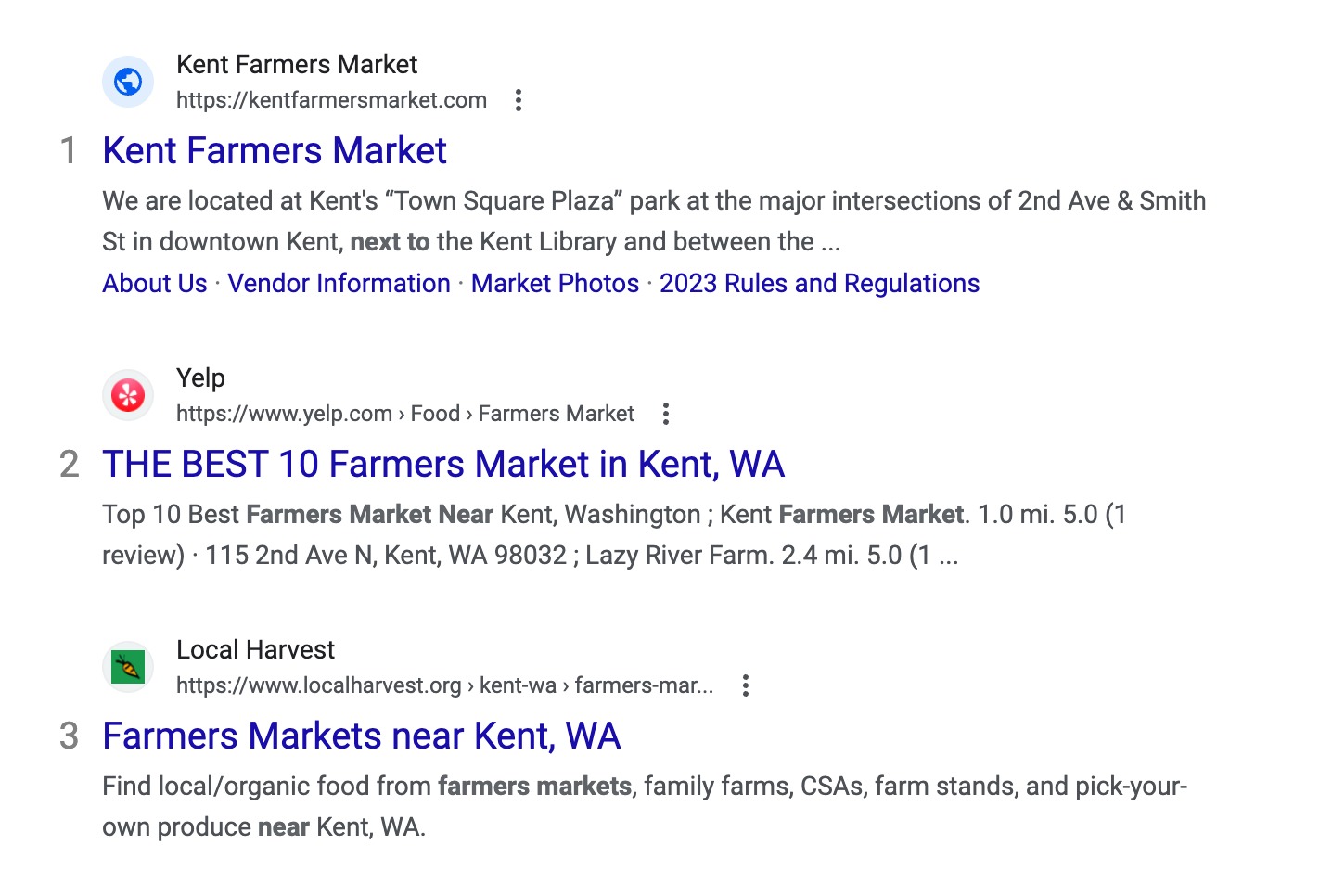In the ever-evolving landscape of search engine optimization (SEO), staying ahead of the game is crucial to ensure your website’s visibility and success. One powerful tool that has gained prominence in recent years is the use of rich snippets. Rich snippets are a form of structured data markup that can significantly enhance the appearance of your search engine results, providing users with more information about your content right on the search results page. Not only do they make your website more appealing to users, but they can also have a remarkable impact on your SEO efforts. In this article, we’ll explore the concept of rich snippets, how they work, and the benefits they offer, along with a simple action you can take to add rich snippets to your website.
A rich snippet is a brief summary of your web page's content displayed in search engine results, designed to provide users with more context and information about the content before they click through to your site.
Understanding Rich Snippets
Before diving into the benefits, it’s essential to understand what rich snippets are and how they work. A rich snippet is a brief summary of your web page’s content displayed in search engine results, designed to provide users with more context and information about the content before they click through to your site. It goes beyond the basic title and meta description and can include additional elements such as star ratings, reviews, product prices, event dates, and more.
Rich snippets are powered by structured data, which is a standardized format for providing information about a web page and its content. This structured data helps search engines understand the context and meaning of your content, enabling them to display relevant information in the search results.
Benefits of Rich Snippets
Increased Click-Through Rates (CTR)
One of the primary advantages of rich snippets is their ability to capture user attention and stand out from the crowd of search results. When users see additional information, such as star ratings or product availability, they are more likely to click on your link, leading to higher CTRs. This increased click-through rate not only drives more organic traffic to your website but also signals to search engines that your content is relevant and engaging.
Enhanced User Experience
Rich snippets provide valuable information right on the search results page, making it easier for users to find the content they’re looking for. Whether it’s a recipe with cooking time and calorie count, an event with date and location details, or a product with reviews and pricing, rich snippets enhance the user experience by delivering essential information upfront.
Improved Search Visibility:
While rich snippets themselves do not directly impact your search engine ranking, they indirectly contribute to improved visibility. Higher click-through rates and improved user engagement send positive signals to search engines about the quality and relevance of your content. Over time, this can lead to improved rankings, as search engines strive to deliver the best results to their users.
Establishing Authority
Rich snippets can help establish your website as a reliable and authoritative source in your niche. When users consistently see your content with detailed information in the search results, they’re more likely to perceive your website as trustworthy, which can lead to increased brand recognition and loyalty.

Take Action! Implement Structured Data Markup
Adding structured data markup to your website is the key to enabling rich snippets. There are various markup formats available, such as JSON-LD, Microdata, and RDFa. Google recommends using JSON-LD for structured data, as it’s easy to implement and understand.
Here’s a step-by-step guide to adding a basic structured data markup for a recipe using JSON-LD:
Identify the Content
Determine which content on your website could benefit from rich snippets. In this example, we’ll use a recipe.
Choose a Structured Data Type
Visit the Schema website (https://schema.org/docs/schemas.html) to find the appropriate structured data type for your content. For a recipe, you can use the “Recipe” schema.
Generate the Markup
Use Google’s Structured Data Markup Helper (https://www.google.com/webmasters/markup-helper/) to generate the JSON-LD markup. Enter the URL of the page with the recipe content, and start tagging elements like the recipe name, ingredients, cooking time, and so on.
Add the Markup to Your Website
Once you’ve generated the JSON-LD markup, add it to the HTML of your web page. Place the markup within the <script type="application/ld+json"> tag in the <head> section of your page.
Test the Markup
Use Google’s Structured Data Testing Tool (https://search.google.com/structured-data/testing-tool/) to ensure that the markup is implemented correctly and that there are no errors.
Monitor and Update
Regularly monitor your website’s performance in search results, and make adjustments to the structured data as needed. Keep your markup up-to-date with any changes to your content.
By following these steps, you can start enjoying the benefits of rich snippets and take a significant step toward improving your website’s visibility and SEO.
Take Away
Rich snippets are a powerful tool that can transform your website’s visibility and enhance your SEO efforts. They provide users with valuable information right on the search results page, leading to higher click-through rates, improved user experience, and better search visibility. By implementing structured data markup, you can enable rich snippets for your content and reap the benefits of increased traffic and authority in your niche.


